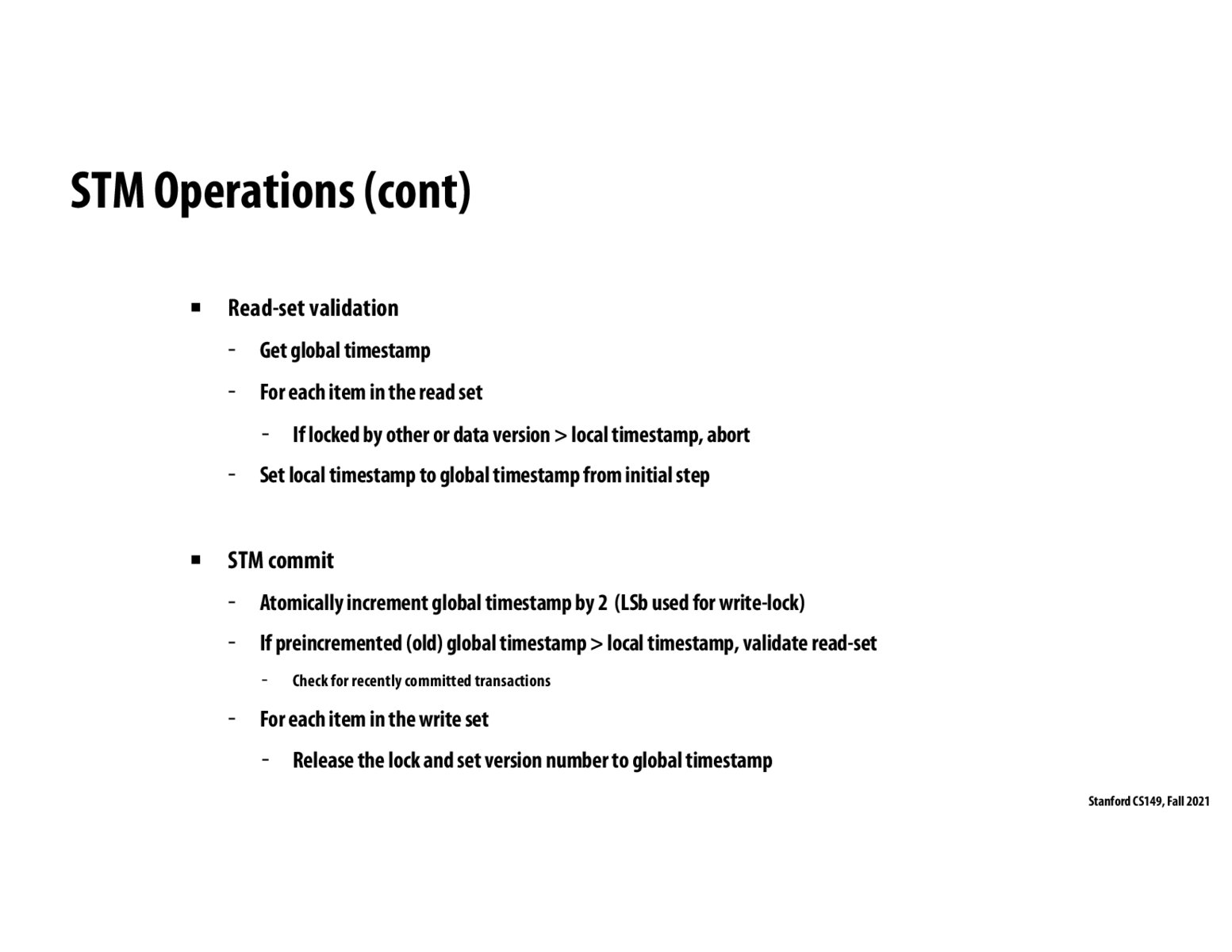
Back to Lecture Thumbnails

narwhale

gsamp
@narwhale, I think this is the case. Global = "what does everyone else think the version of this object is?" Local = "what is the state this object was when I first opened it for read/write?" And then when committing, "do these two agree?"

lordpancake
@narwhale, yes, or rather that the local timestamp is a save of the global timestamp that represents the state version that the thread thinks it's acting on. So if the memory addresses that the thread uses still have an old timestamp, then it has permission to make changes on those memory addresses. And it is okay to ignore whatever the greater world around the thread is doing
Please log in to leave a comment.
Copyright 2021 Stanford University
I was wondering what the different between the local and global timestamps are: it would seem that local timestamps per transaction, and global timestamps allow for the transactions to stay ``synchronized''?